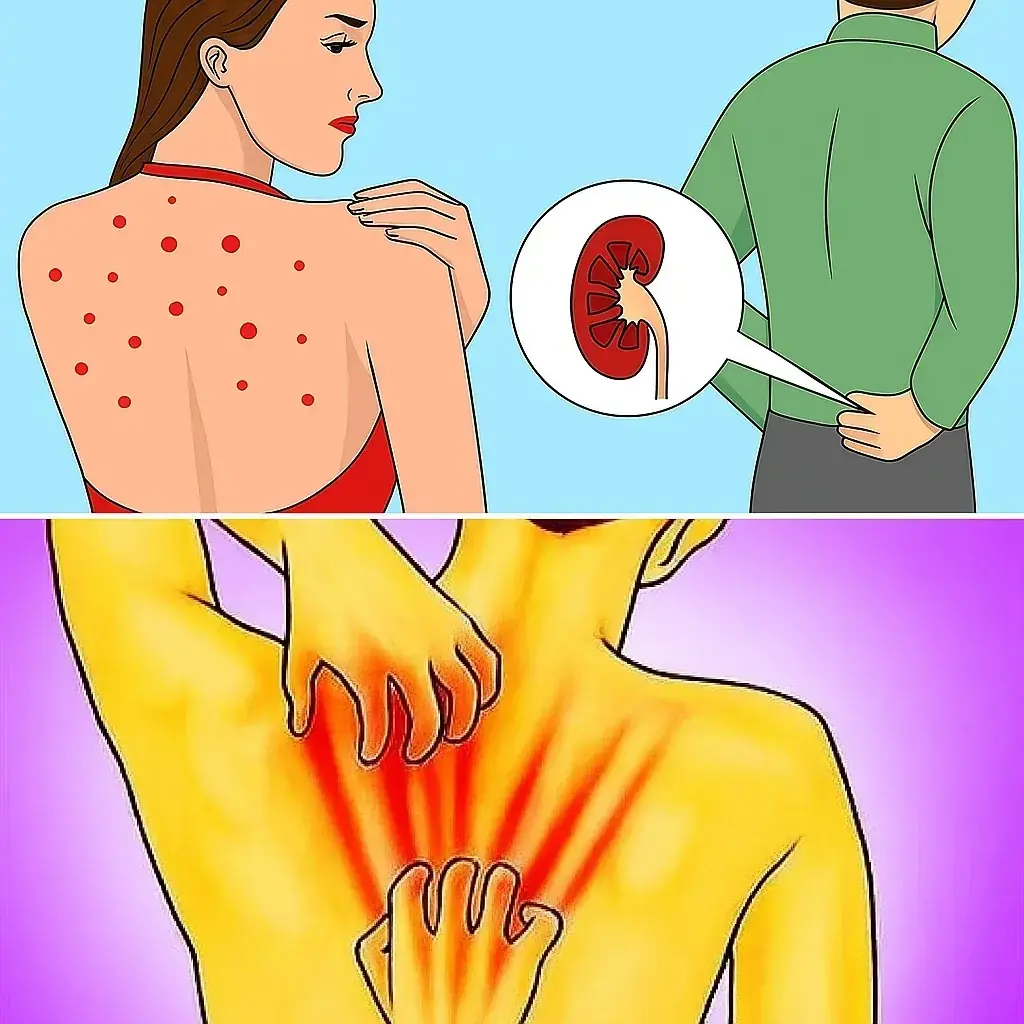
20 subtle can.cer symptoms commonly missed
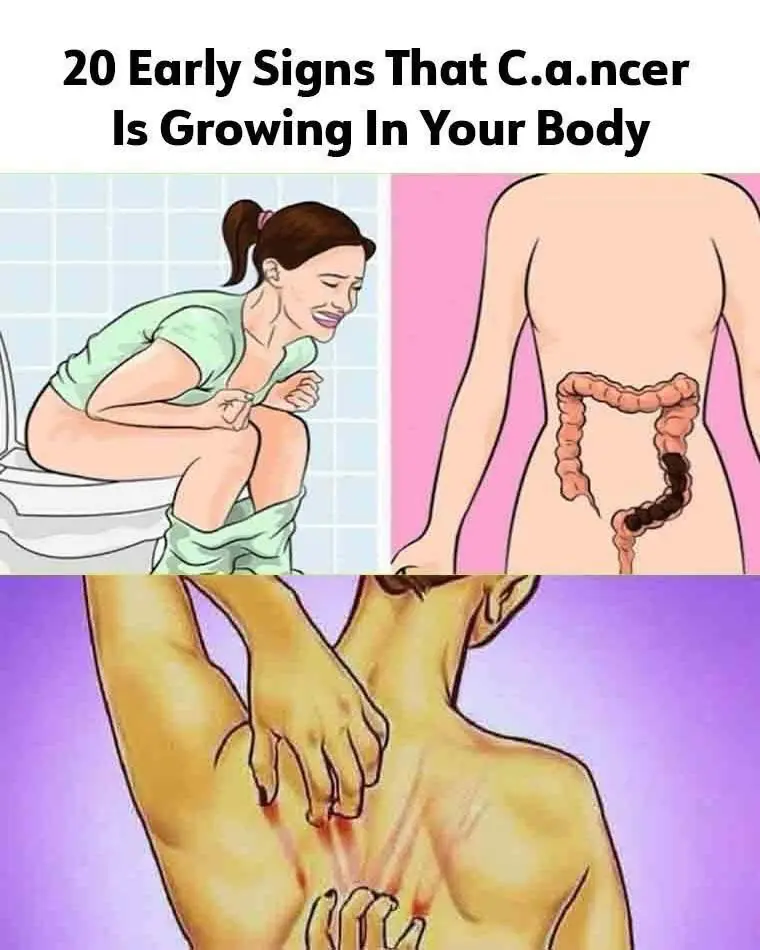
20 Subtle Can.cer Symptoms Commonly Missed
Cancer is a disease that affects millions of people worldwide, and it is often associated with dramatic symptoms that are hard to ignore, such as unexplained weight loss, fatigue, or visible lumps. However, cancer often begins insidiously, with subtle symptoms that can easily be overlooked or misinterpreted as something less serious. Early detection is critical for effective treatment, but recognizing these subtle warning signs can be challenging, especially when they are mistaken for other health conditions.
In this article, we will explore 20 subtle cancer symptoms that are often missed or dismissed, which may help you catch cancer early, when treatment is more likely to be effective.
1. Unexplained Weight Loss
While weight loss can be a symptom of many different conditions, unexplained weight loss of 10 pounds or more over a short period, without any changes to diet or exercise, could be a warning sign of cancer. This can occur because cancer cells use up the body’s energy and resources, leading to unintended weight loss.
Why it’s missed:
Weight loss is commonly attributed to stress, dietary changes, or other illnesses.
2. Persistent Fatigue
Feeling tired is something most people experience, but when fatigue becomes persistent and doesn't improve with rest, it can be an indication of cancer. Fatigue can occur because the body is working harder than usual to fight cancer or due to anemia caused by blood loss.
Why it’s missed:
Fatigue is often dismissed as a result of lifestyle factors like stress or poor sleep.
3. Unexplained Pain
Pain that doesn’t have an obvious cause, or pain that doesn’t go away, could be a sign of cancer. For instance, headaches that don’t improve with typical treatments could be a sign of a brain tumor. Likewise, back pain that lasts despite treatment could indicate issues with the spine or organs.
Why it’s missed:
Chronic pain is commonly attributed to injury, overuse, or stress.
4. Changes in Skin Appearance or Moles
While most moles are benign, changes in the size, shape, or color of a mole, or the appearance of a new mole, can be signs of melanoma, a type of skin cancer. Skin cancer can also cause changes like yellowing of the skin or eyes (jaundice).
Why it’s missed:
People often overlook moles or assume they’re harmless, especially if they have a history of sun exposure.
5. Difficulty Swallowing
Persistent difficulty swallowing (dysphagia) can be caused by cancers of the esophagus or throat. As a tumor grows, it can obstruct the esophagus, making swallowing difficult or painful.
Why it’s missed:
Difficulty swallowing is often blamed on food getting “stuck” or acid reflux, which can be misdiagnosed as less severe conditions.
6. Changes in Bowel or Bladder Habits
Any sudden or unexplained changes in bowel or bladder habits, such as persistent diarrhea, constipation, or blood in the stool, can be signs of colorectal cancer. Similarly, blood in the urine or frequent urination can indicate bladder or kidney cancer.
Why it’s missed:
Changes in bathroom habits are often attributed to stress, dietary changes, or infections, but they can be signs of cancer.
7. Persistent Cough or Hoarseness
A chronic cough that doesn’t improve, or hoarseness that lasts for more than a few weeks, can indicate lung cancer or cancers of the throat. This is especially true if the cough produces blood or mucus.
Why it’s missed:
A persistent cough is often blamed on a cold, allergies, or smoking-related issues.
8. Skin Changes or Unexplained Rashes
Certain cancers, such as lymphoma or leukemia, can cause skin changes like rashes, bruising, or paleness. Skin rashes that don’t heal or change in appearance should be evaluated by a doctor.
Why it’s missed:
Rashes and skin changes are frequently dismissed as allergic reactions or skin conditions.
9. Unexplained Bleeding or Discharge
Bleeding from the mouth, nose, or rectum, or unexplained vaginal bleeding, can be a sign of various types of cancer, including cancers of the reproductive organs, colon, or blood.
Why it’s missed:
Many people are uncomfortable discussing bleeding issues, or they may chalk it up to minor issues like hemorrhoids or menstruation.
10. Swollen Lymph Nodes
Swollen or hard lymph nodes, which can be felt under the skin, may indicate lymphoma or leukemia. Although swollen lymph nodes can occur with infections, they should be checked by a doctor if they remain swollen for several weeks.
Why it’s missed:
Swollen lymph nodes are often thought to be caused by minor infections or illnesses, leading to underestimation of their significance.
11. Unexplained Night Sweats
Sweating excessively at night without any obvious cause, like heat or exercise, can be a sign of leukemia or other cancers. Night sweats that occur regularly should be evaluated, especially if they are accompanied by weight loss or fever.
Why it’s missed:
Night sweats are often dismissed as a result of stress or hormonal changes, particularly in women.
12. Painful or Unusual Lumps
Lumps or bumps that are painful or unexplained can be a sign of breast cancer, lymphoma, or soft tissue sarcomas. Lumps that appear suddenly and do not go away or grow over time should be checked by a healthcare provider.
Why it’s missed:
Lumps are often assumed to be benign cysts or muscle issues, which leads to them being ignored.
13. Changes in Appetite or Taste
Loss of appetite or a sudden dislike for food can be signs of various cancers, particularly those of the stomach or liver. Sometimes, cancer can cause changes in the way food tastes, making it seem bitter or unpleasant.
Why it’s missed:
Appetite changes are often attributed to stress, emotional issues, or digestive problems.
14. Frequent Infections or Fever
A weakened immune system due to leukemia or lymphoma can cause frequent infections or low-grade fevers. These conditions often persist even after treatment for infections or colds.
Why it’s missed:
Infections are usually considered viral or bacterial and treated as such, often without recognizing the possibility of a more serious underlying condition.
15. Difficulty Breathing
Shortness of breath or labored breathing can be caused by lung cancer, but it can also result from cancer spreading to the lungs. This symptom should not be ignored, especially if it comes on suddenly.
Why it’s missed:
Breathing difficulties are often attributed to asthma, allergies, or physical exertion.
16. Unexplained Nausea or Vomiting
Constant nausea or vomiting without a clear cause can signal stomach or digestive tract cancers, such as pancreatic cancer or gastrointestinal cancers. It is particularly concerning if these symptoms don’t improve with over-the-counter treatments.
Why it’s missed:
Nausea and vomiting are frequently dismissed as a result of digestive issues, food poisoning, or stress.
17. Unexplained Pain in the Back or Abdomen
Back pain that doesn’t improve, or abdominal pain that doesn’t have an obvious cause, can be indicative of cancers in the pancreas, stomach, or other organs. These pains may also be due to metastasis if the cancer has spread to other areas of the body.
Why it’s missed:
Pain is often attributed to muscle strain, poor posture, or gastrointestinal issues.
18. Persistent Indigestion or Heartburn
Chronic indigestion or heartburn that doesn’t improve with medication can be a sign of esophageal or stomach cancer. If symptoms become more severe or frequent, it’s essential to seek medical evaluation.
Why it’s missed:
Many people attribute heartburn to eating spicy foods or other dietary triggers, neglecting the possibility of a more serious condition.
19. Difficulty in Bowel Movements
While occasional constipation is common, persistent difficulty with bowel movements, along with a feeling of incomplete evacuation, can signal colorectal cancer.
Why it’s missed:
Constipation is often linked to poor diet or dehydration, and its connection to cancer is frequently overlooked.
20. Unexplained Anxiety or Mental Health Changes
Cancer can cause hormonal imbalances or interfere with brain function, leading to mood changes, anxiety, or depression. These psychological symptoms are sometimes dismissed as unrelated to physical illness.
Why it’s missed:
Mood swings or anxiety are often brushed off as stress, fatigue, or mental health issues, but they can indicate an underlying cancer diagnosis.
Conclusion
Early detection of can.cer can greatly improve the prognosis, but subtle symptoms are often dismissed or misdiagnosed. Being aware of these less obvious signs and seeking medical attention when they appear can make a significant difference in early diagnosis and treatment. If you or a loved one experiences persistent or unexplained symptoms, it’s essential to consult with a healthcare provider for further evaluation. Early intervention is key to catching cancer before it becomes harder to treat, and with awareness, we can reduce the number of missed diagnoses and increase the chance of successful outcomes.
News in the same category


The Power of Gyan Mudra: Benefits and How to Practice It
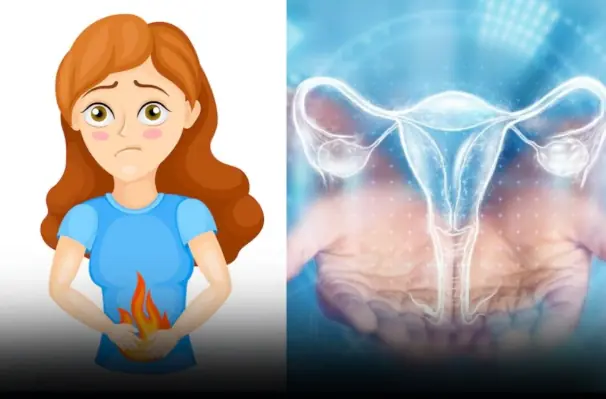
8 Early Warning Signs Of Ovarian Cancer You Shouldn’t Ignore
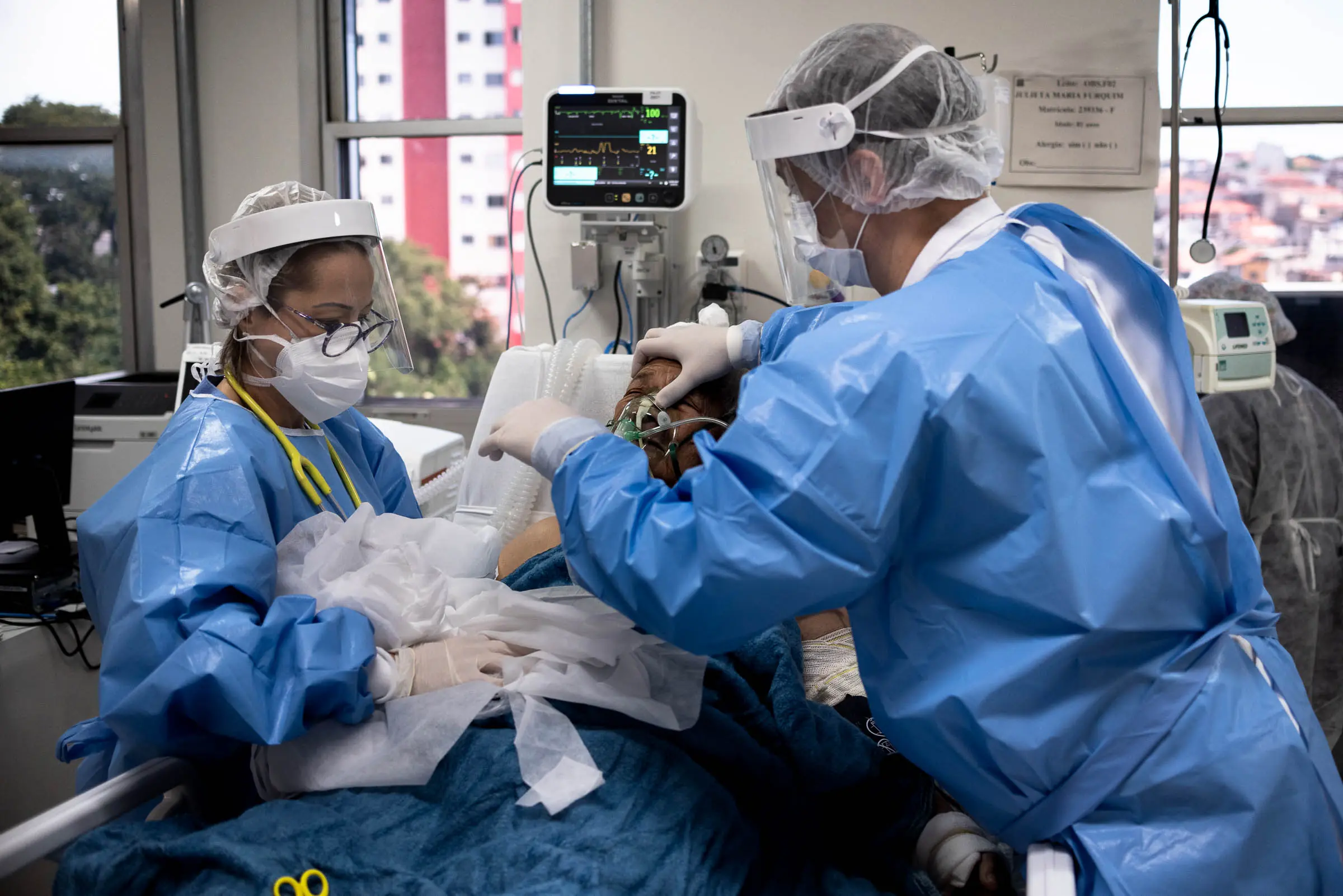
35-Year-Old Man’s Sore Throat Turned into Cancer After 5 Chemotherapy Sessions—Doctor Urges

The Leaf Known as a Natural Remedy, But Often Overlooked

Check out 5 foods that if left overnight not only lose their nutrients but also become toxic.

How to wash hair with green tea leaves to reduce hair loss and make hair smooth

Pas.sed Away at 39 from Bre.ast Can.cer

21-year-old male student with severe kidney and heart fai.lure: The “culprit” is a familiar drink, not al.cohol

More people are dy.ing from heart fai.lure, doctors warn: Give up these 4 habits now
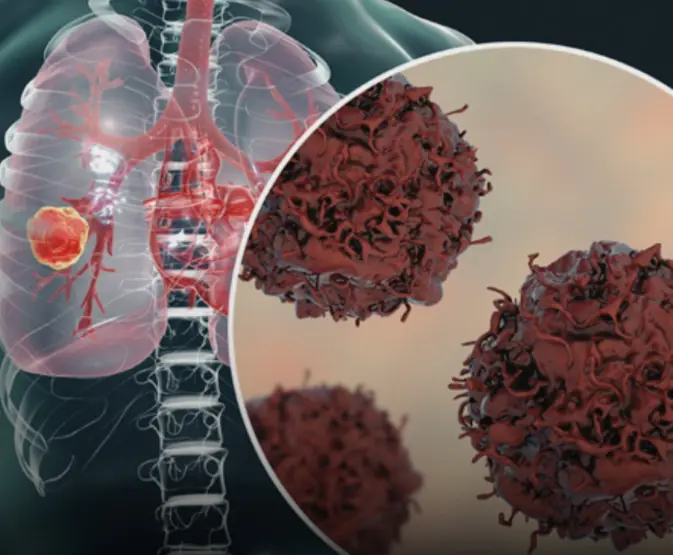
The "hidden nature" of early stage lung can.cer

6 Surprising Health Benefits of Okra That Will Make You Love It

5 extremely toxic times of the day when you absolutely should not bathe or you will die suddenly without knowing it

5 Habits That Destroy Your Sto.mach

Don’t Underestimate Figs! Their Benefits Might Make You Rethink Your Diet

What’s Really Causing Your Leg Cramps at Night and How to Finally Stop Them

The Overlooked Root You Toss Out Could Be a Potent Remedy
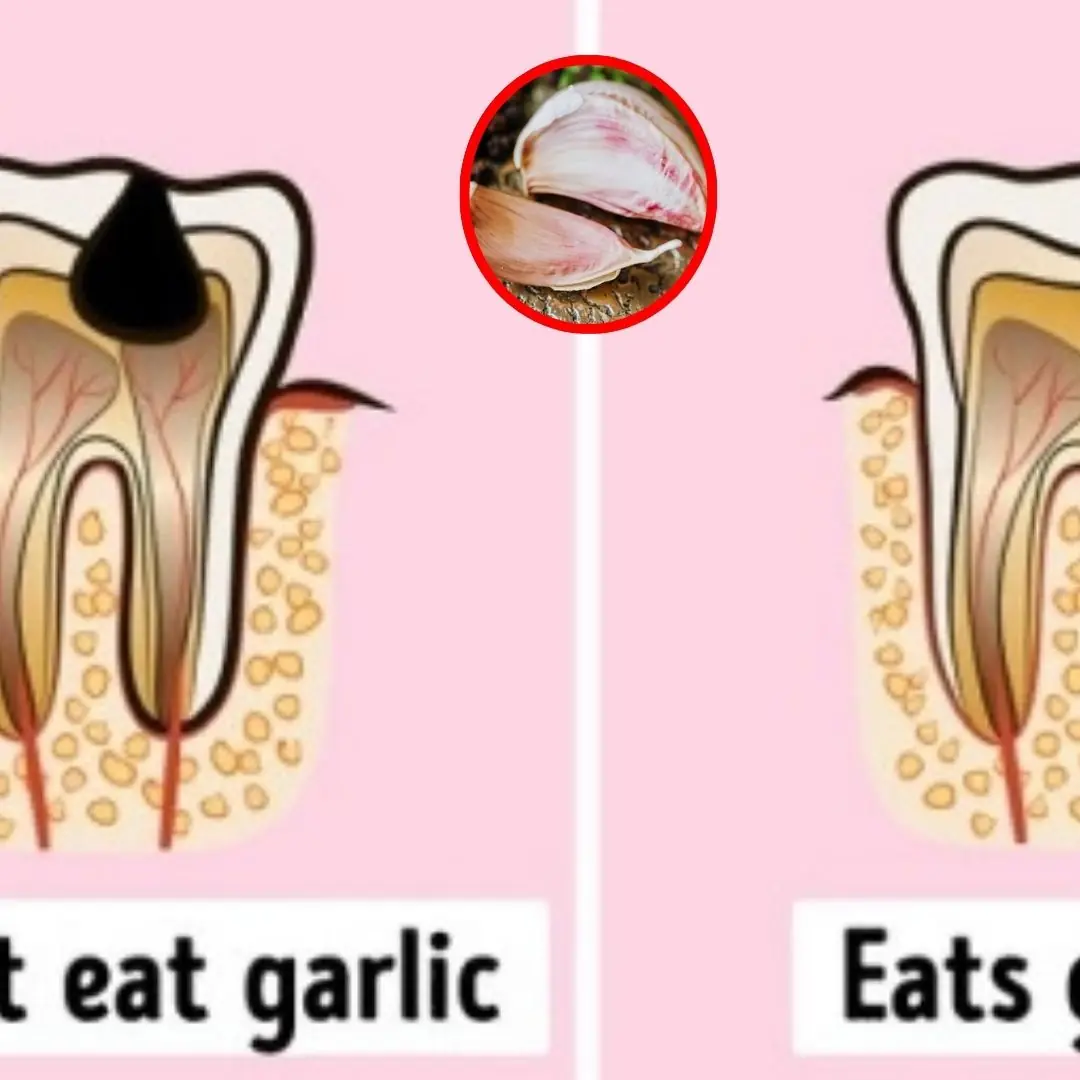
Eat One Clove of Raw Garlic a Day and Unlock These 5 Benefits
News Post

10 Warning Signs Your Kidneys May Be in Serious Danger
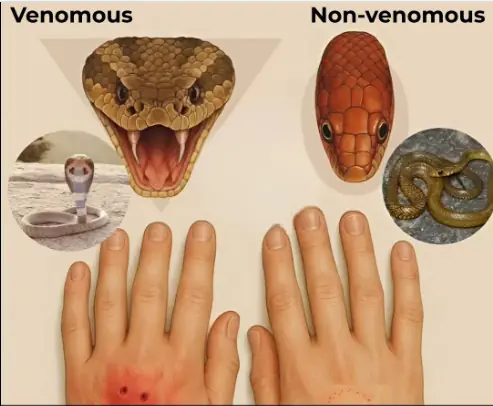
When bitten by a snake, you should do these things first

The difference between the spirit of a loved one and other forces

The Power of Gyan Mudra: Benefits and How to Practice It

8 Early Warning Signs Of Ovarian Cancer You Shouldn’t Ignore

35-Year-Old Man’s Sore Throat Turned into Cancer After 5 Chemotherapy Sessions—Doctor Urges

The Leaf Known as a Natural Remedy, But Often Overlooked

Check out 5 foods that if left overnight not only lose their nutrients but also become toxic.

How to wash hair with green tea leaves to reduce hair loss and make hair smooth

Adopting an Abandoned Baby Girl at the Gate

Pas.sed Away at 39 from Bre.ast Can.cer

2 Types of Vegetables That Are Prone to Becoming a ‘Parasitic Nest,’ Especially the First One

21-year-old male student with severe kidney and heart fai.lure: The “culprit” is a familiar drink, not al.cohol

More people are dy.ing from heart fai.lure, doctors warn: Give up these 4 habits now

The "hidden nature" of early stage lung can.cer

6 Surprising Health Benefits of Okra That Will Make You Love It

5 extremely toxic times of the day when you absolutely should not bathe or you will die suddenly without knowing it

5 life skills children need to learn early to protect themselves and save others
